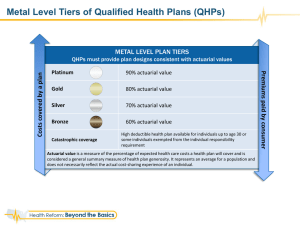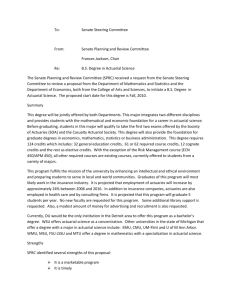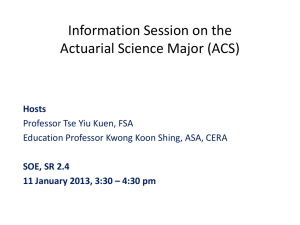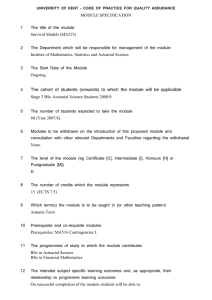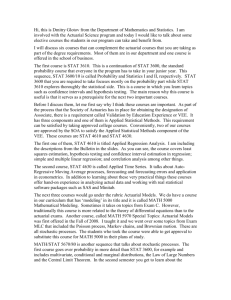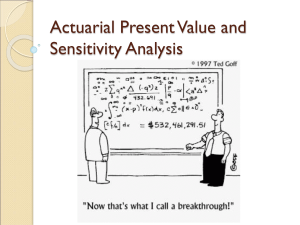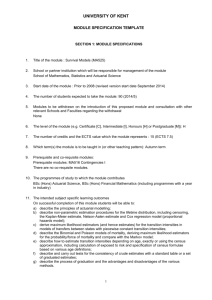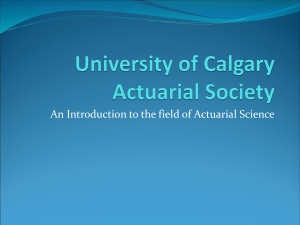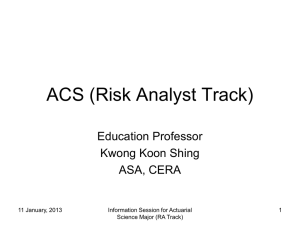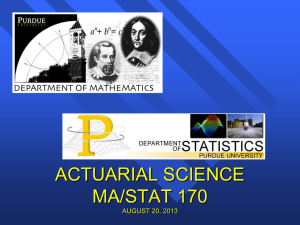New Program Request Form for Bachelor`s and Master`s Degrees
advertisement
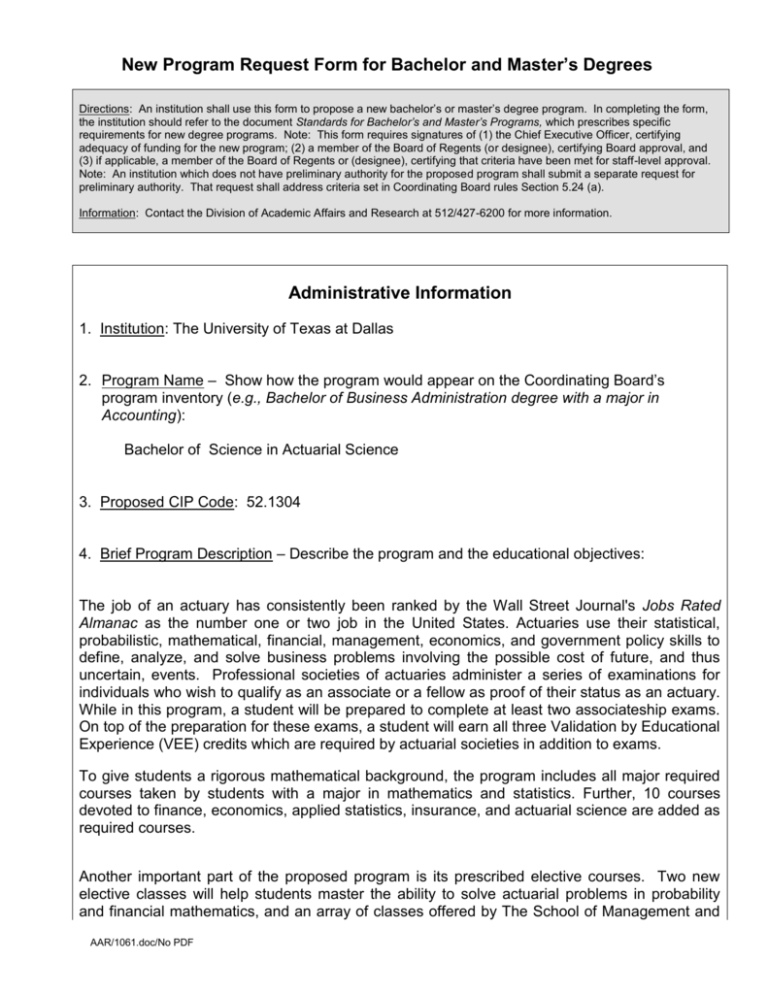
New Program Request Form for Bachelor and Master’s Degrees Directions: An institution shall use this form to propose a new bachelor’s or master’s degree program. In completing the form, the institution should refer to the document Standards for Bachelor’s and Master’s Programs, which prescribes specific requirements for new degree programs. Note: This form requires signatures of (1) the Chief Executive Officer, certifying adequacy of funding for the new program; (2) a member of the Board of Regents (or designee), certifying Board approval, and (3) if applicable, a member of the Board of Regents or (designee), certifying that criteria have been met for staff-level approval. Note: An institution which does not have preliminary authority for the proposed program shall submit a separate request for preliminary authority. That request shall address criteria set in Coordinating Board rules Section 5.24 (a). Information: Contact the Division of Academic Affairs and Research at 512/427-6200 for more information. Administrative Information 1. Institution: The University of Texas at Dallas 2. Program Name – Show how the program would appear on the Coordinating Board’s program inventory (e.g., Bachelor of Business Administration degree with a major in Accounting): Bachelor of Science in Actuarial Science 3. Proposed CIP Code: 52.1304 4. Brief Program Description – Describe the program and the educational objectives: The job of an actuary has consistently been ranked by the Wall Street Journal's Jobs Rated Almanac as the number one or two job in the United States. Actuaries use their statistical, probabilistic, mathematical, financial, management, economics, and government policy skills to define, analyze, and solve business problems involving the possible cost of future, and thus uncertain, events. Professional societies of actuaries administer a series of examinations for individuals who wish to qualify as an associate or a fellow as proof of their status as an actuary. While in this program, a student will be prepared to complete at least two associateship exams. On top of the preparation for these exams, a student will earn all three Validation by Educational Experience (VEE) credits which are required by actuarial societies in addition to exams. To give students a rigorous mathematical background, the program includes all major required courses taken by students with a major in mathematics and statistics. Further, 10 courses devoted to finance, economics, applied statistics, insurance, and actuarial science are added as required courses. Another important part of the proposed program is its prescribed elective courses. Two new elective classes will help students master the ability to solve actuarial problems in probability and financial mathematics, and an array of classes offered by The School of Management and AAR/1061.doc/No PDF U. T. Dallas B.S. Actuarial Science Page 26 The School of Economics, Political and Policy Sciences is included. Actuaries assemble and analyze data to estimate the probability and likely cost of the occurrence of events such as death, sickness, injury, disability, or loss of property. Actuaries also address financial and economic questions, including those involving the level of pension contributions required to produce a certain retirement income and the way in which a company should invest resources to maximize its return on investments in light of potential risks. Using their broad knowledge of statistics, finance, economics, insurance, law and business, actuaries help design insurance policies, pension plans, and other financial strategies in a manner which will help to ensure that the plans are maintained on a sound financial basis. As a result, education of future actuaries requires competencies in mathematics, statistics, finance, and economics. 5. Administrative Unit – Identify where the program would fit within the organizational structure of the university (e.g., The Department of Electrical Engineering within the College of Engineering): The Department of Mathematical Sciences within the School of Natural Sciences and Mathematics. 6. Proposed Implementation Date – Report the first semester and year that students would enter the program: Fall 2009 7. Contact Person – Provide contact information for the person who can answer specific questions about the program: Program Information I. Need Note: Complete I.A and I.B only if preliminary authority for the program was granted more than four years ago. This includes programs for which the institution was granted broad preliminary authority for the discipline. A. Job Market Need – Provide short- and long-term evidence of the need for graduates in the job market. T AAR/1061.doc/No PDF U. T. Dallas B.S. Actuarial Science Page 36 C. Enrollment Projections – Use this table to show the estimated cumulative headcount and full-time student equivalent (FTSE) enrollment for the first five years of the program. (Include majors only and consider attrition and graduation.) e) Projected numbers take into account partition of students into full-time and part time students, attrition, graduation, transferred, and new-part-time students. II. Quality A. Degree Requirements - Use this table to show the degree requirements of the program. (Modify the table as needed; if necessary, replicate the table for more than one option.) Semester Credit Hours Category B. General Education Core Curriculum (bachelor’s degree only) 42 Required Courses 66 Prescribed Electives 9 Free Electives 3 Other (Specify, e.g., internships, clinical work) (if not included above) TOTAL 120 Clock Hours Curriculum – Use these tables to identify the required courses and prescribed electives of the program. Note with an asterisk (*) courses that would be added if the program is approved. (Add and delete rows as needed. If applicable, replicate the tables for different tracks/options.) Prefix and Number RHET 1302 BA 3311 GOVT 2301 GOVT 2302 ECON 2301 AP 1301 HUMA 1301 AAR/1061.doc/No PDF General Education Core Curriculum Rhetoric Business Communications Constitutional Foundations and Political Behavior in the U.S. And Texas Political Institutions in the U.S. And Texas American History Principles of Macroeconomics Exploration of the Arts Exploration of the Humanities Science with at least 1 hour of laboratory SCH 3 3 3 3 6 3 3 3 9 U. T. Dallas B.S. Actuarial Science Page 46 MATH 2417 MATH 2419 Calculus I Calculus II Total General Education Core Curriculum 3(1) 3(1) 42 1-SCH for Calculus I and 1-SCH for Calculus II can be counted as electives. Prefix and Number CS 1337 AIM 2301 ECON 2302 BA 3341 MATH 2418 MATH 2420 MATH 2451 MATH 3310 MATH 3311 MATH 3379 STAT 3355 BA 4346 BA 4354 MATH 4301 MATH 4302 MATH 4334 STAT 4351 STAT 4382 STAT 4372 *STAT 43xx *STAT 43xx Prefix and Number AIM 2302 AIM 3331 BA 3351 BA 3390 BA 4345 BA 4347 BA 4348 BA 4350 ECON 4330 STAT 4352 *STAT 43xx *STAT 43xx Required Courses SCH Computer Science I Introductory Financial Accounting Principles of Microeconomics Business Finance Linear Algebra Differential Equations with Applications Multivariate Calculus with Applications Theoretical Concepts of Calculus Abstract Algebra I Complex Variables Data Analysis for Statisticians and Actuaries Investment Management Insurance and Risk Management Mathematical Analysis I Mathematical Analysis II Numerical Analysis Probability Stochastic Processes Actuarial Science Principles of Actuarial Models Principles of Actuarial Methods Total Required Courses Outside the Core 3 3 3 3 4 4 4 3 3 3 3 3 3 3 3 3 3 3 3 3 3 66 Prescribed Elective Courses Students must take three of the following 13 courses Introductory Management Accounting Intermediate Financial Accounting I Introduction to Management Information Systems Quantitative Methods in Finance Financial Markets and Institutions Applied Corporate Finance Options and Future Markets Personal Financial Planning Law and Economics Mathematical Statistics Actuarial Probability as Problem Solving Actuarial Financial Mathematics as Problem Solving SCH 9 3 3 3 3 3 3 3 3 3 3 3 3 Advanced Electives (6 hours): All students are required to take at least six hours of advanced electives outside their major field of study. These must be either upper-division classes or lower-division classes that have prerequisites. Prefix and AAR/1061.doc/No PDF Free Elective Courses SCH U. T. Dallas B.S. Actuarial Science Page 56 Number Free Elective (subject to advisor's approval) 3 Total semester credit hours: 42+66+9+3=120 Faculty – Use these tables to provide information about Core and Support faculty. Add an asterisk (*) before the name of the individual who will have direct administrative responsibilities for the program. (Add and delete rows as needed.) AAR/1061.doc/No PDF
